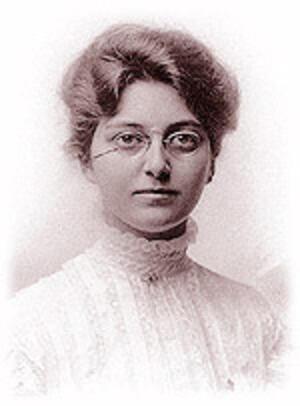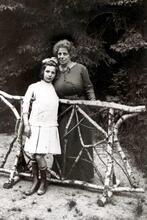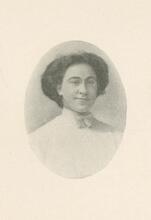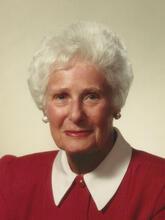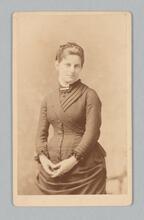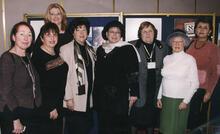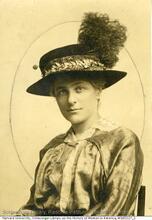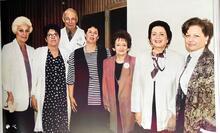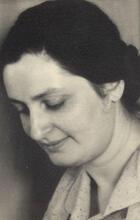Rhoda Kaufman
Rhoda Kaufman helped create social welfare organizations throughout Georgia and overcame prejudice against her religion and gender to become one of the most respected social reformers in the country. From 1913 to 1915 she served as president of the Atlanta American Association of College Women, lobbying successfully for state funding of schools for delinquent and mentally challenged girls. From 1923 to 1929, she served as executive secretary of Georgia’s Department of Public Welfare. In 1930, Herbert Hoover appointed her to his White House Conference on Child Welfare. She remained involved with social reform throughout her life through the United Nations Women’s Organization and the League of Women Voters, among others.
Article
A preeminent player in the establishment of Georgia’s social welfare network, Rhoda Kaufman was one of the most highly regarded southern reformers in the country. Despite being a Jewish woman in a society that marginalized her identity, Kaufman became a respected professional within the confines of a male-dominated profession. While her primary goal was to apply the precepts of objectivity and “professionalism” to the field of social work, Kaufman’s Jewish beliefs played a central role in her work.
Born on October 26, 1888, in Columbus, Georgia, to middle-class German immigrants, Kaufman earned a BS in physics, logic, and psychology from Vanderbilt University in 1909. After moving to Atlanta, she became involved in both charity work and women’s voluntary organizations, including the National Council of Jewish Women. As president of the local American Association of College Women (1913–1915), she successfully lobbied for state funding of a girls’ reform school, the Georgia Children’s Code Commission, and the School for the Feeble-Minded.
Kaufman served in most city and state welfare organizations, including the State Council of Social Agencies (1921–1923) and the Department of Public Welfare (1920–1923). She was appointed executive secretary of Georgia’s Department of Public Welfare (1923–1929), one of only three women in the country to hold so high an office; there, she not only created vital social programs but also oversaw research for jurists, such as Louis Brandeis, that helped support legislation to protect the poorest and most vulnerable citizens.
Kaufman belonged to the major national welfare organizations, including the National Conference of Social Work and the American Association of Social Workers, and she administered the U.S. Children’s Bureau Statistics Project in Georgia. She also served on President Herbert Hoover’s White House Conference on Child Welfare (1930–1931). In 1943, she was named Georgia’s Social Welfare Woman of the Year. After her retirement in 1945, she joined the United Nations Women’s Organization, the League of Women Voters, and the Institute for Citizenship, a world affairs organization. She maintained strong ties with her local Jewish community by joining both the Atlanta Council of Jewish Women and the Atlanta Temple. She died on March 4, 1956, in Atlanta.
Gordon, Linda. Heroes of Their Own Lives: The Politics and History of Family Violence, Boston, 1880–1930 (1988).
Kaufman, Rhoda. Manuscript collection. Georgia Department of Archives and History, Atlanta, and Papers. Association of American University Women Collection. Georgia Department of Archives and History, Atlanta.
Rogow, Faith. Gone to Another Meeting: The National Council of Jewish Women, 1893–1993 (1993).
Smith, Patricia E. “Rhoda Kaufman, a Southern Progressive’s Career, 1913–1956.” Atlanta Historical Bulletin 17–18: 43–50.
Wenger, Beth. “Jewish Women of the Club: The Changing Role of Atlanta’s Jewish Women, 1870–1930.” American Jewish History 76, no. 3: 311–333.
WWIAJ (1938).

